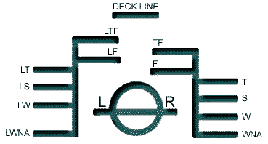By the mid-1800's, the overloading of cargo ships had become a major problem. By 1836 public concern about the loss of ships and crews reached the point where Parliament was forced to appoint a committee to investigate the growing number of shipwrecks. In 1850 legislation was passed to create the Marine Department of the Board of Trade: one of its duties was to enforce the laws governing the manning, crew competence and operation of merchant vessels.
Despite calls for regulation, the British government avoided direct interference with ship operators until 1870 when Samuel Plimsoll (1824-1898), a member of Parliament from Derby, headed a campaign to require that vessels bear a load line marking indicating when they were overloaded, hence ensuring the safety of crew and cargo. Plimsoll exposed what he described as "coffin ships" created by overloading. He drafted a bill to improve conditions on merchant vessels. Gladstone's government set up a Royal Commission to investigate merchant marine practices and conditions; the report exposed many malpractices committed by unscrupulous owners. A Bill introduced in 1875 was defeated.
Plimsoll's violent speeches aroused the House of Commons and his book, Our Seamen, shocked the public. It also earned him the hatred of many shipowners who started a series of legal battles against him. Undeterred, Plimsoll fought until finally, in 1876, Parliament was forced to pass the Unseaworthy Ships Bill into law. The Act required a series of 'lines' to be painted on the ship to show the maximum loading point. Unfortunately, the Act allowed the shipowners to paint the line where they saw fit and some chose to paint it on the funnel of the ship. It was not until 1890 that Board of Trade officials applied the regulations that Plimsoll had intended.
This Plimsoll line is for the starboard side of a vessel; on the port side,the markings are reversed. The centre of the disk is placed at the middle of the loadline. The lines are one inch thick.

The letters indicate cargo, season and location:
| LTF Lumber, Tropical, Fresh LF Lumber, Fresh LT Lumber, Tropical LS Lumber, Summer LW Lumber, Winter LWNA Lumber, Winter, North Atlantic |
LR Lloyds Register of Shipping | TF Tropical Fresh Water Mark F Fresh Water Mark T Tropical Load Line S Summer Load Line W Winter Load Line WNA Winter Load Line, North Atlantic |
Last modified 13 August 2002